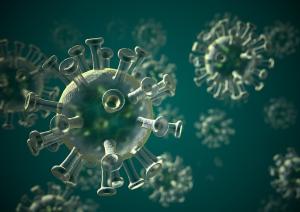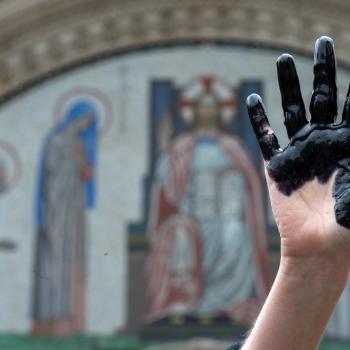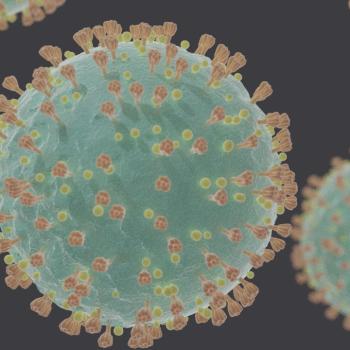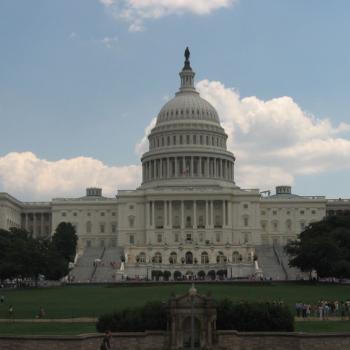
Life is a precious gift to be honored and preserved. This does not mean we should artificially preserve life indefinitely, hooked up on a machine, never allowing a person to go to their natural death. When we do that, what they have is not true life, but its shadow, and with it, the person has lost most if not all the dignity which should be associated with life in the process. On the other hand, we should not be indifferent to the plight of others. We should do what we can to protect and preserve the life of others, but we must do so in a way which does not undermine the value of life itself. This is why health care should be seen as a right. Needless to say, so many of those who claim to support life, so many who claim all life is precious, show through their actions how little they believe their own words. While they speak loudly about matters which do not concern them or place any expectations or burdens upon themselves, when they are expected to do something, they often make the loudest noise against doing what is necessary. Even if it is minor action expected of them, they will find every excuse they can to dismiss their obligation, proving that their words about life are meaningless. Indeed, they, like Cain, end up asking, “Am I my brother’s keeper?” (Gen. 4:9b RSV). We have seen this with COVID, where so many not only fought against actions which were necessary to limit its spread and harm to society, they continue that fight to this day. They show a grave indifference to life when natural threats come toward them, an indifference which, as St. John Paul II knew, only makes things worse: “Some threats come from nature itself, but they are made worse by the culpable indifference and negligence of those who could in some cases remedy them.”[1]
COVID, as it continues to evolve and comes to us in new forms, remains a threat which we should not take likely. While we have a better handle on how to deal with it, and we are better protected against it if we are vaccinated, this does not mean we are entirely in the clear. Vaccinated people can still die from COVID. Vaccinated people can still have long-term effects due to COVID. Vaccinated people can still spread COVID to others. Obviously, vaccinated people have these issues less than unvaccinated people, but with the way COVID mutates, vaccination proves to be less and less effective, allowing COVID outbreaks to harm even those who are vaccinated. Yet, it seems that way too many people are taking things casually, ignoring the threat of COVID. This is why so many people, even if they manifest significant symptoms indicating they might be infected with COVID, not only do not get themselves tested to see if they have it, they go about their lives as if they are not a threat to others; they go to work, to the store, to the church, coughing and sneezing without consideration of others, that is, without even taking basic precautions which could help save someone’s life (like wearing a mask). Indifference is especially seen in churches, churches which often only followed lockdown rules with the greatest reluctance. This is why, once lockdowns were removed: so many of them acted as if everything is normal and COVID should no longer a concern, indeed, that its threat was and remains overblown. Churches should know better. The preservation of life, the dignity of life, should be a concern of theirs. Instead of fighting the government on COVID, they should have been some of its greatest supporters, making sure indifference did not lead to needless deaths. Those who ignored COVID or were indifferent to it, and encouraged others to likewise be indifferent, must be seen as being at least partially culpable for all the needless deaths that occurred. They did not provide for their family, nor their community, with what was necessary for its preservation. Such indifference, Scripture suggests, indicates a lack of fidelity to the Gospel: “If any one does not provide for his relatives, and especially for his own family, he has disowned the faith and is worse than an unbeliever” (1 Tim. 5:8 RSV).
COVID continues to be a threat. Currently, China is dealing with a major COVID-related disaster as they are experiencing another round of massive COVID infections and hospitalizations. It is said that they have had about 250 million COVID infections in December:
In more than three decades of emergency medicine, Beijing-based doctor Howard Bernstein said, he has never seen anything like this.
Patients are arriving at his hospital in ever-increasing numbers; almost all are elderly and many are very unwell with COVID and pneumonia symptoms, he said.
Bernstein’s account reflects similar testimony from medical staff across China who are scrambling to cope after China’s abrupt U-turn on its previously strict COVID policies this month was followed by a nationwide wave of infections.[2]
This, of course, is affecting China’s economy, and as such, will affect the rest of the world:
The rapid spread of infection has driven many people indoors and emptied shops and restaurants. Factories and companies are also forced to shut down or cut production because of more workers getting sick. [3]
This could give the rest of the world a terrible foreshadowing of what is to come, because, as precedent shows us, what happens in China will soon be experienced by others as well. And, to be sure, while in the United States, things are better than they were, we must not ignore that COVID still is a threat, and many, especially the elderly, are needlessly dying from it because of the indifference we have taken towards it:
So far this winter, the rise in Covid-19 appears to be relatively mild – hospitalizations are ticking up in most states, although the overall rate is still just a fraction of what it was during other surges.
But for older adults like Stewart, the situation is much more severe. Hospitalizations among seniors are nearing the peak from the Delta surge and rising fast.
And the age gap has never been wider. Since October, the Covid-19 hospitalization rate among seniors has been at least four times higher than average. Even during the first winter surge in 2020, when Covid-19 took a devastating sweep through nursing homes, there was never more than a three-fold difference.[4]
We must no longer act as if the threat of COVID is mostly behind us; we must face the fact that, in reality, COVID continues to threaten us all. While we certainly have a better way to deal with it than we did at the beginning of the pandemic, we are not in the clear. COVID continues to mutate, threatening to overcome the medicine we have to deal with it. And, it is clear, many politicians are pushing an agenda to make us grow indifferent to COVID, to think it really is not a serious problem and that all the engagements we have done to deal with it are worse than COVID itself. They would have us forget the millions of deaths associated with COVID, and look away when we see people still dying from it. Sadly, we find many of those who otherwise claim to promote and support the dignity of life are among those who are at the forefront in denying COVID concerns. Their words echo the sentiments of Cain, as they continue to suggest, in one fashion or another, we should not be our brother (or neighbor’s) keeper (and protector). They say this do deny government the power and authority it needs to properly deal with the pandemic. It is, as St. John Paul II understood, the thinking of the evil one which encourages such deadly indifference:
At the root of every act of violence against one’s neighbour there is a concession to the “thinking” of the evil one, the one who “was a murderer from the beginning” (Jn 8:44). As the Apostle John reminds us: “For this is the message which you have heard from the beginning, that we should love one another, and not be like Cain who was of the evil one and murdered his brother” (1 Jn 3:11-12). Cain’s killing of his brother at the very dawn of history is thus a sad witness of how evil spreads with amazing speed: man’s revolt against God in the earthly paradise is followed by the deadly combat of man against man. [5]
Those who promote this difference use a deadly ideology (such as libertarianism) as a way to defend their position; but, it is clear, whatever ideology is used to support such indifference, in the end, it proves to be rather murderous in the way it ignores and denigrates concerns of mass deaths:
After the crime, God intervenes to avenge the one killed. Before God, who asks him about the fate of Abel, Cain, instead of showing remorse and apologizing, arrogantly eludes the question: “I do not know; am I my brother’s keeper?” (Gen 4:9). “I do not know”: Cain tries to cover up his crime with a lie. This was and still is the case, when all kinds of ideologies try to justify and disguise the most atrocious crimes against human beings. “Am I my brother’s keeper?”: Cain does not wish to think about his brother and refuses to accept the responsibility which every person has towards others. We cannot but think of today’s tendency for people to refuse to accept responsibility for their brothers and sisters. Symptoms of this trend include the lack of solidarity towards society’s weakest members-such as the elderly, the infirm, immigrants, children- and the indifference frequently found in relations between the world’s peoples even when basic values such as survival, freedom and peace are involved. [6]
We can and must do better. We must not be indifferent. We must not let people needlessly die just because the way to save them requires some action from us which, though it is but a minor inconvenience for us, we will fight to make sure we are not required to do it (such as wearing a mask during a pandemic). Every time we find ourselves facing a threat to the livelihood of many people in our society, we find ourselves being challenged by God to do what we can to protect and preserve life as much as is possible. We are, as it were, given a chance to prove our good will, or else, to show how much we are like Cain:
Shortly after its account of the creation of the world and of man, the Bible takes up the issue of human relationships. Cain kills his brother Abel and then hears God ask: “Where is your brother Abel?” (Gen 4:9). His answer is one that we ourselves all too often give: “Am I my brother’s keeper?” (ibid.). By the very question he asks, God leaves no room for an appeal to determinism or fatalism as a justification for our own indifference. Instead, he encourages us to create a different culture, in which we resolve our conflicts and care for one another. [7]
As China shows us, COVID continues to be a worldwide threat. We must not let our guard down. We must not be indifferent to its concerns. We must continue to do what we can to help stop its spread and lessen the harm it can cause to those who are infected by it. We must take sound precautions, some which will also prove helpful in dealing with other potential threats like RSV and the flu. We should not act as if those who get sick and die would have otherwise died anyway and so should not be our concern; not only do we not know that would have happened, but if we think that, we show, once again, how little we value life. We must embrace what St John Paul II said, which is, the value of our neighbor, making sure we not only are not indifferent to them, but we love them:
This renewed life-style involves a passing from indifference to concern for others, from rejection to acceptance of them. Other people are not rivals from whom we must defend ourselves, but brothers and sisters to be supported. They are to be loved for their own sakes, and they enrich us by their very presence. [8]
[1] Pope St. John Paul II, Evangelium Vitae. Vatican translation. ¶10.
[2] Martin Quin Pollard, “‘The ICU Is Full’: Medical Staff On Frontline Of China’s COVID Fight Say Hospitals Are ‘Overwhelmed’” in YahooNews (via Reuters) (12-26-2022).
[3] Laura He, “China’s Covid Surge Hits Factories And Consumer Market” in CNN (12-26-2022)
[4][4] Deidre McPhillip, “A Covid-19 ‘Senior Wave’ Is Driving Up Hospitalizations” in CNN (12-23-2022).
[5] Pope St. John Paul II, Evangelium Vitae, ¶8.
[6] Pope St. John Paul II, Evangelium Vitae, ¶8.
[7] Pope Francis, Fratelli tutti. Vatican translation. ¶57.
[8] Pope St. John Paul II, Evangelium Vitae, ¶98.
Stay in touch! Like A Little Bit of Nothing on Facebook.
If you liked what you read, please consider sharing it with your friends and family!
N.B.: While I read comments to moderate them, I rarely respond to them. If I don’t respond to your comment directly, don’t assume I am unthankful for it. I appreciate it. But I want readers to feel free to ask questions, and hopefully, dialogue with each other. I have shared what I wanted to say, though some responses will get a brief reply by me, or, if I find it interesting and something I can engage fully, as the foundation for another post. I have had many posts inspired or improved upon thanks to my readers.













